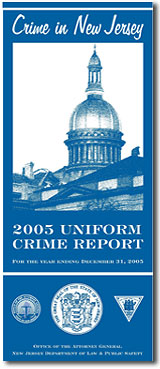Merger mania
 Among the many ideas getting kicked around in Trenton by the special committees investigating ways to contain property taxes is the merging of school districts. Taking the widely supported, but scarcely implemented, concept of shared services to its logical extreme, legislators are weighing a proposal to consolidate the administrations of New Jersey's 611 school districts into 21 countywide districts.
Among the many ideas getting kicked around in Trenton by the special committees investigating ways to contain property taxes is the merging of school districts. Taking the widely supported, but scarcely implemented, concept of shared services to its logical extreme, legislators are weighing a proposal to consolidate the administrations of New Jersey's 611 school districts into 21 countywide districts.The appeal of such a plan is obvious. Reducing redundant infrastructure, centralizing purchasing decisions, and slashing bureaucracy are all sensible ways of reining in costs. While no reliable estimates are yet available for the potential statewide savings from implementing such a plan in New Jersey, the track record of such reforms is good. Other states have successfully pursued such intiatives in the recent past.
Assuming the legislators possess the will to move this from concept to reality, there are still a number of obstacles to surmount. One of the most formidable will be, as usual, opposition from special interest groups who stand to lose out from efforts to improve efficiency. In this case, those special interests groups may include the New Jersey Association of School Administrators, for obvious reasons, and the New Jersey School Boards Association, a natural foe of any plan that would impinge on local control of the education system. Those two organizations, and others with an interest in avoiding some of the more radical proposals under consideration, can be expected to attempt to rally opposition among the voters by appealing to the common tendency to support unification of school districts everywhere but their own hometowns.
Will that play in Teaneck? If anything, it seems that Teaneck should be a hotbed of support for school district unification. Teaneck voters have demonstrated their concern over the rapidly rising tax burden at the polls recently. They are also all too familiar with the excesses that sometimes take place in independent school districts, thanks to the brouhaha over extra perks and pay for former school superintendent Harold Morris this past spring. The fewer hands there are dipping into the cookie jar, the less room there is for these types of taxpayer-funded shenanigans.
The most important reason Teaneck should feel comfortable with the school district merger plan concerns one major, though not often discussed, source for the opposition to school district consolidation. One of the main reasons New Jersey has 566 municipalities and 611 school districts and not many fewer than that is the desire of certain communities to segregate themselves from less prosperous areas with a different socioeconomic or racial makeup and manage their own exclusive towns and schools. As a result, many small and inefficient groupings exist throughout New Jersey, driving up the total cost for all state residents, even if a significant proportion of the cost is borne by locals. Teaneck has no reason to stand up in defense of this status quo. As a school district with a long history of embracing diversity (the longest in the nation among majority white communities), Teaneck has nothing to fear from a blurring of the lines separating local school districts, and everything to gain from the potential cost savings.











